FWB Tells Pointy Stories
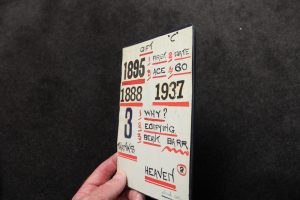
FWB’s last sermon notes – you can listen to this sermon by clicking the link at the end of this article.
There are tall stories, funny stories, sad stories, true stories – and if you have ever read an FWB story you will know that there are also – pointy stories. Studying FWB’s sermons and essays reveals his development and growth over his 67 year ministry career from his first sermon, given on the streets of Clapham September 2nd, 1888, was short, rather cold, impersonal, and filled with calls to repent. His last sermon, given on March 9th, 1955, was very warm, very personal, built on a series of short stories around a meta-story, with a concluding appeal to turn to the Saviour. Boreham had learned how to harness a story to make a point. At the height of his preaching popularity, other less successful preachers dismissed him as a credible preacher with the contemptuous criticism that he was just a story-teller! But the genius of Boreham is now seen in how he was able to communicate the profound aspects of the Gospel with stories. In fact, his stories were very pointy.
FWB’s first sermon on the streets of Clapham, London, went for just 7 minutes. In it he said, “Oh dear friends repent. Oh dear friends believe. Oh dear friends come to Jesus. Oh dear friends look to the cross. Oh dear friends accept the Saviour. Oh dear friends flee from the wrath to come!” Boreham described this sermon as “very puerile, very raw, very void.” He told a 1955 congregation that he would be very embarrassed for anyone to read his manuscript of this 1888 sermon. On March 9th, 1895, FWB was ordained to the pastorate of the Mosgiel Baptist Church. His first sermon as an ordained minister was titled, “Jesus Christ, And Him Crucified” based on First Corinthians 2:2.
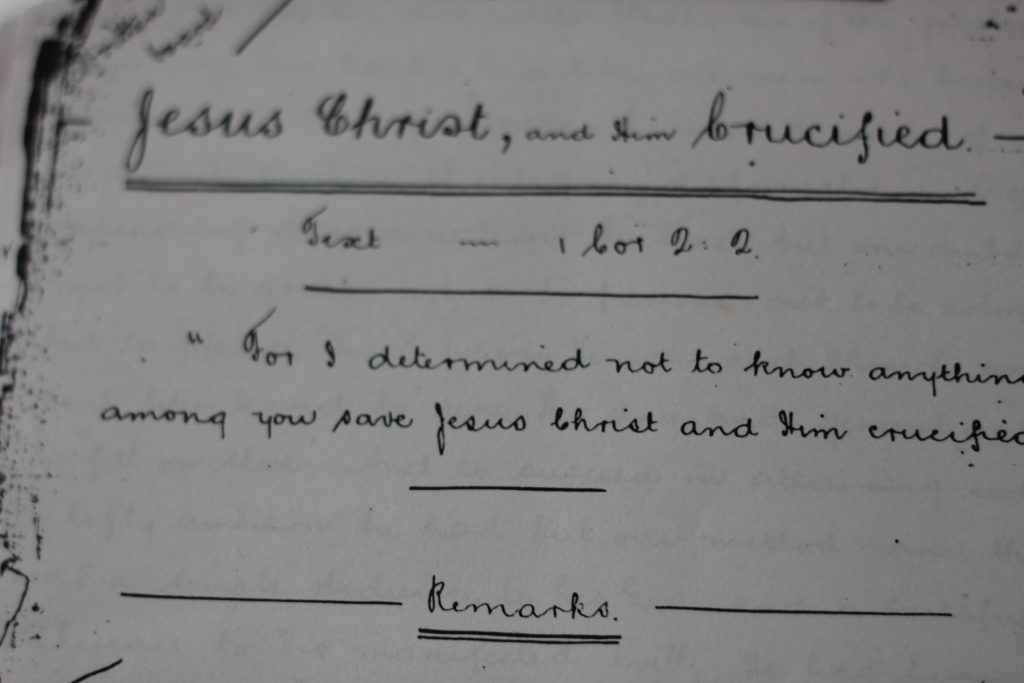
FWB’s first sermon notes, title page. Click on the image to read a copy of FWB’s original sermon notes of this sermon.
FWB’s initial preaching was very evangelistic. This is not surprising considering the preachers who had most influenced him. Despite his very realistic assessment of C.H. Spurgeon (depicted right), whom Boreham only got to hear when CHS was well past his prime, Spurgeon greatly influenced FWB. Frank Boreham would spend nearly all of his preaching career entering every pulpit he graced always wearing a “Spurgeon preaching jacket” (see FWB pictured left, 1924). He was also influenced by D.L. Moody whom he greatly enjoyed listening to and was amazed at his evangelistic effectiveness. Other evangelistic preaching influences including Archibald G. Brown, W.Y. Fullerton, who summoned congregations of thousands at the time Boreham had moved to London. But as an ordained pastor, Boreham quickly discovered that a pastor’s weekly congregation needed more variety than an evangelistic sermon. A short time after arriving in Mosgiel, New Zealand, in 1895, Boreham confided to J.J. Doke, that he had run dry. He enquired of Doke how he might remedy this crisis. Doke’s reply was simple but profound: “Read young man! Read!” “But what shall I read?” responded Boreham. “Read Gibbon!” replied Doke.
This advice greatly helped FWB. But unexpectedly for Boreham, it became a bridge to not only better preaching, but effective preaching. This is because Boreham’s diet of Gibbon’s The Decline And Fall Of The Roman Empire, had given him an ability to illustrate his sermons and essays with anecdotes and stories. This new skill enabled him to write his first mainstream newspaper article for the Otago Daily Times (drawing parallels between the disintegration of the Roman Empire and the talk in New Zealand of not supporting “The Mother Country” and its Empire-brotherhood regarding the Boer War of 1899).
Boreham came to realise that books were a tremendous source of sermon illustrations – particularly, as Doke had counselled him, biographies. And then, the lights went on for FWB as a pastor. His struggles with shyness and small-talk were overcome when he realised that everyone in his congregation had a story to tell. This revolutionised him as a pastor, and as a preacher. When he took up his Hobart pastorate he was able to draw upon his treasuries of literary stories and his own time as a pastor in New Zealand. This is evident in his first Epworth Press book, The Luggage Of Life (1912).
Frank described his move to Hobart as the time when he found his confidence in the pulpit. Equipped with an ever-growing bounty of stories he was able to embark on his longest and most successful sermon series, Texts That Made History, which became one of his best-selling series of books. But is marked a significant change in style for him. He wrote to his publisher, Charles Kelly, about his change in style and enquired whether Epworth Press would consider such a book as A Bunch of Everlastings. “Send Everlastings at once!” came the reply. And the rest, as they say, is history!
By the 1930s Boreham had mastered the art of story-telling preaching. This tremendously increased his reach as he was not only preaching these stories, he was writing them as weekly newspaper articles, and would then refine them for inclusion in his books. He had discovered that rather than preaching on justification by faith, he could tell the story of Martin Luther and point out that Martin Luther’s story was shaped largely by one verse of Scripture (Romans 1:17).
Retirement from the rigours of pastoral ministry came for FWB in 1928. In 1937, after a period of illness, doctors advised the frail Dr. Boreham to cease any evening ministry. He feared that this may result in his retirement from preaching ministry all together. But then an invitation from The Scots’ Church Melbourne came to conduct 3 months worth of Wednesday lunch-time services for city workers. These meetings were so popular that they continued for 18 years! They also became the seed-bed for a shelf load of additional books from the pen of the Doctor even after he had announced his last book had already been published.
At his last sermon, given on March 9th, 1955, he reflected on his 60 years of ordained ministry. Looking back to his first sermon on the streets of Clapham, which had lasted for 7 minutes, he said-
“With the years, I have outgrown the technique of ‘Oh dear friends’, but I thank God today that I have never outgrown the technique of ‘repent’, ‘believe’, ‘look to the Cross’, ‘accept the Saviour’, ‘flee from the wrath to come’! These words have been the keynote of all that I have said.”
In the documentary on FWB’s life and ministry we see that he felt his ministry had lacked evangelistic effectiveness. Yet, his evangelistic fruit had not only actually been immediate, it had also been effective decades later as lost souls from all around the world became enthralled with the stories in his books and enamoured with the Saviour whom he loved so dearly and used stories to convey to an ever increasingly cynical audience. Each of these stories of conversion of his readers to the Saviour support the notion that while some stories are true, some stories are moving, and some stories are tall, FWB’s stories were pointy. And because the point of the Gospel is not just about entering into the Kingdom but also growing in it as well, Boreham told many stories where the point was about living a more devoted life to Christ.
Examples of Boreham’s story-telling style of preaching fill his writings. I was recently struck by this again when reading his Chimes Among Stars essay in his book, “Cliffs Of Opal” (1948) where he tells the moving story of the pioneer Australian missionary to India, Miss Ellen Arnold.
How many preachers could be so appealing, so applicable, and so disarming with this John 14:6 text? By telling Miss Arnold’s story, FWB was able to make his exhortation to his audience to live fully devoted lives to Christ without sounding judgmental or condemning. This is an example of what Dr. Gordon Moyes described as, Boreham’s ability to “gently sneak up to you with a spiritual hand-grenade“. F.W. Boreham was able to bring people to Christ, and urge believers to come closer to Christ, through the shrewd use of stories – all of which had a point.
Andrew Corbett
Listen to Dr. F.W. Boreham’s last sermon-


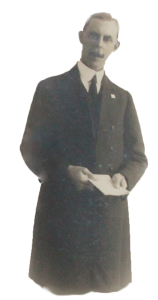
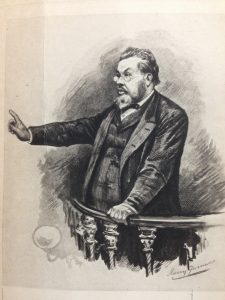
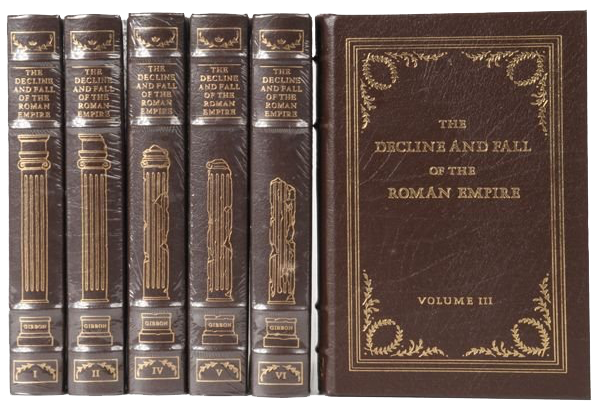
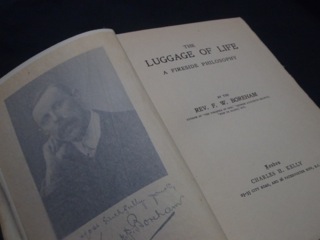
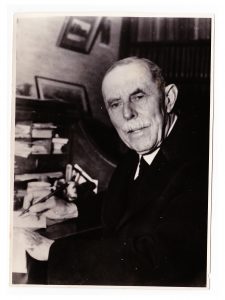
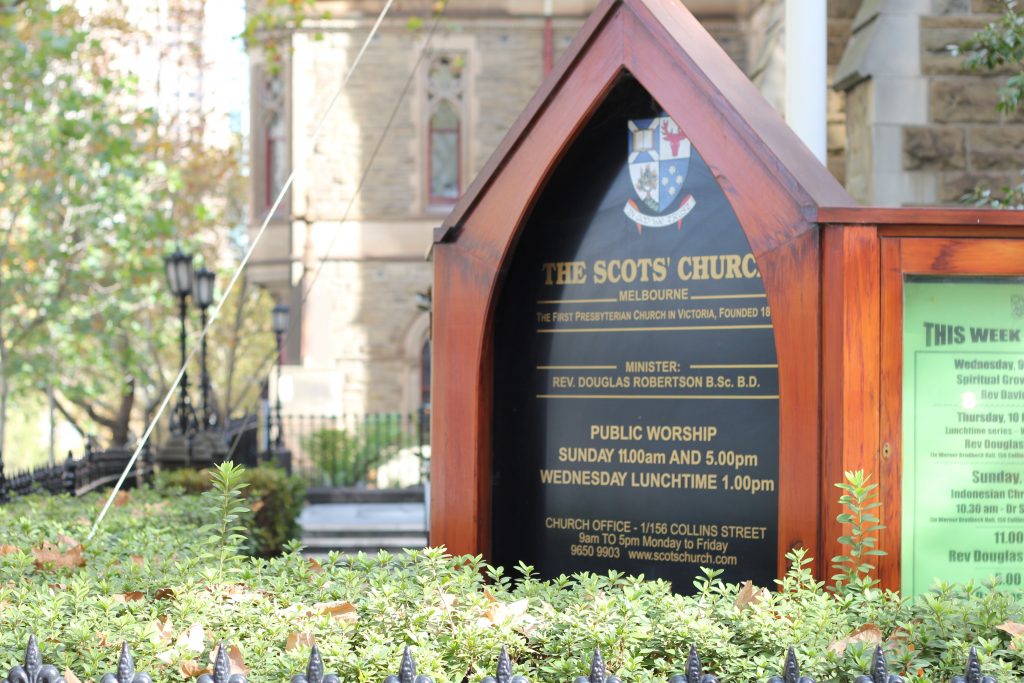
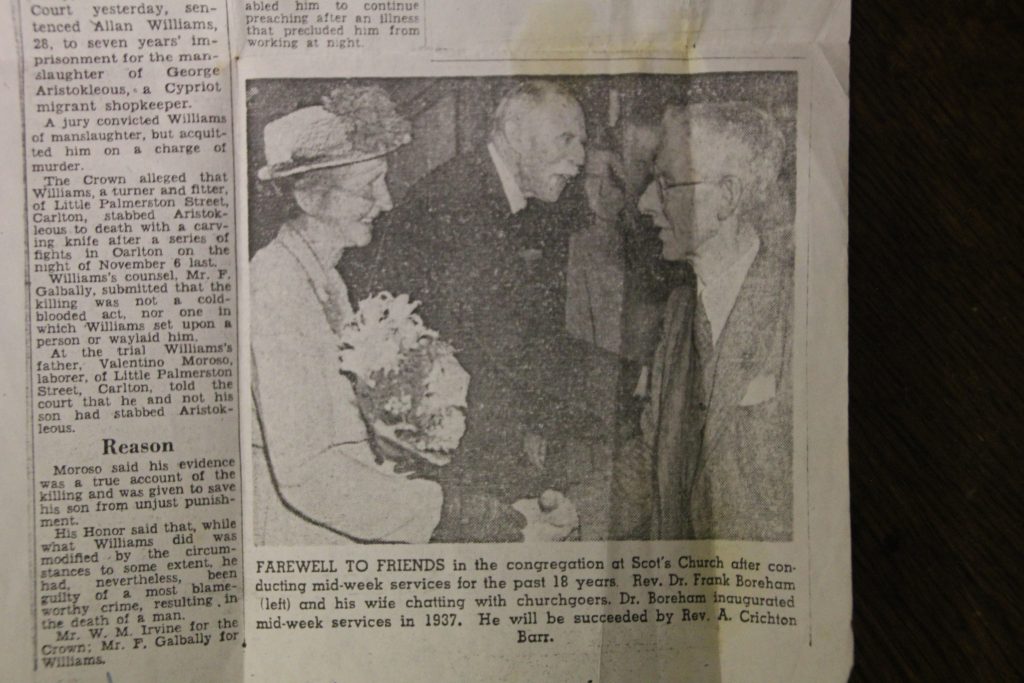
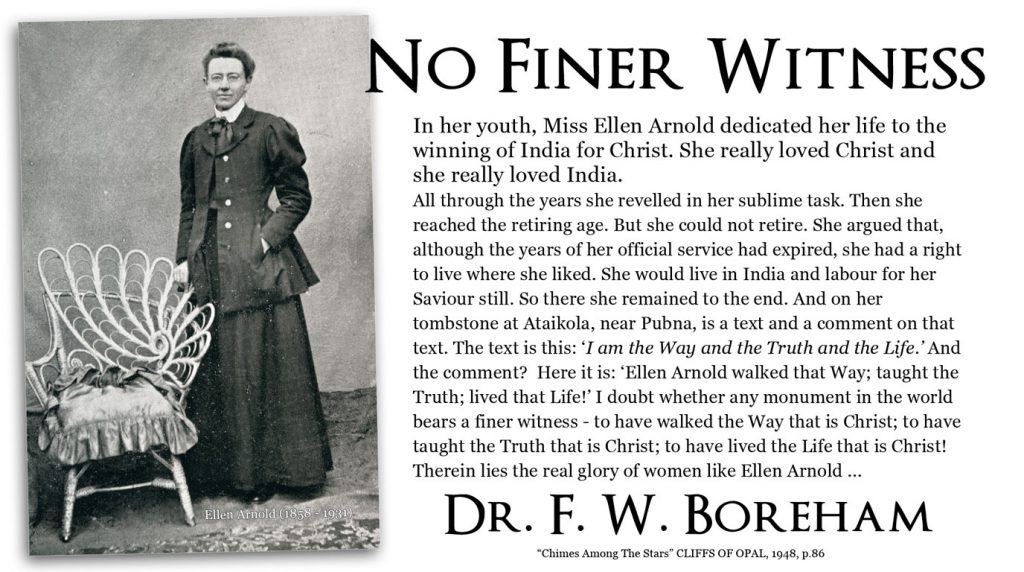
















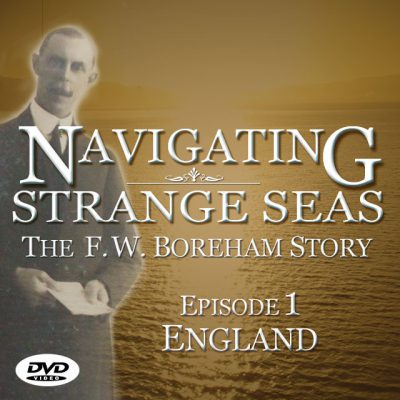
0 Comments